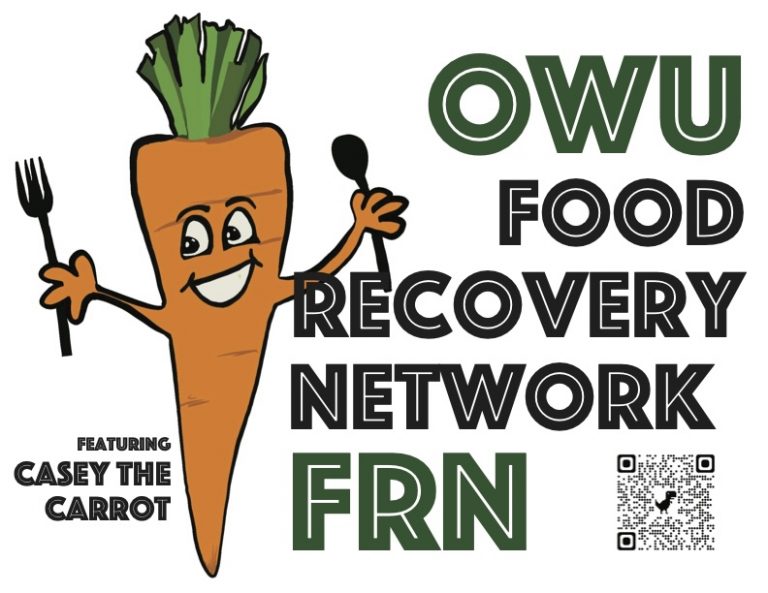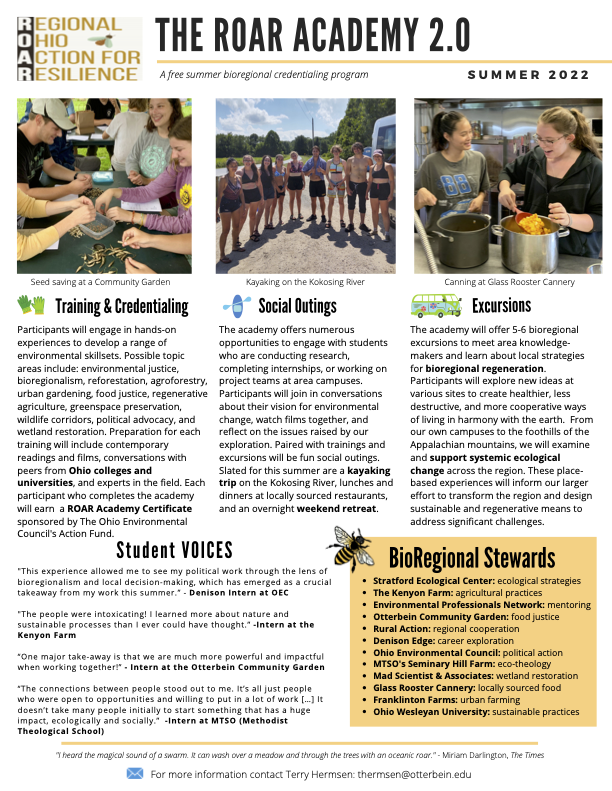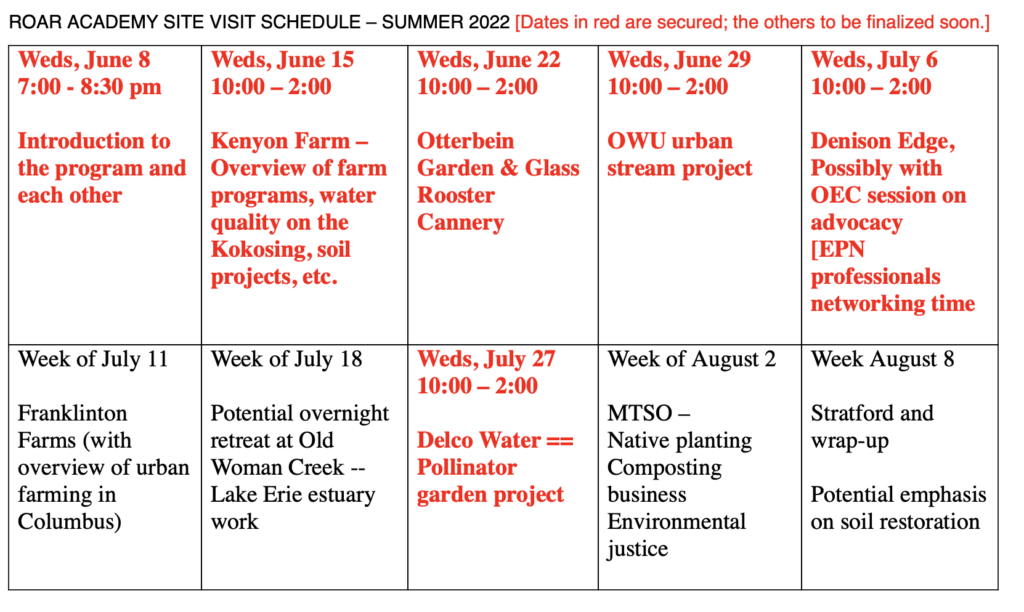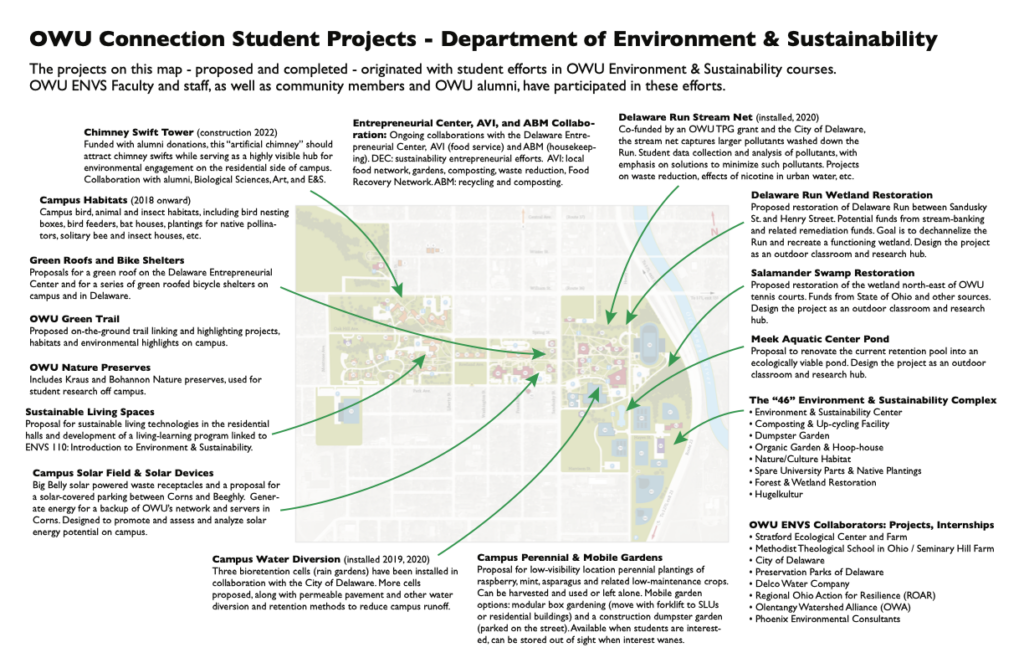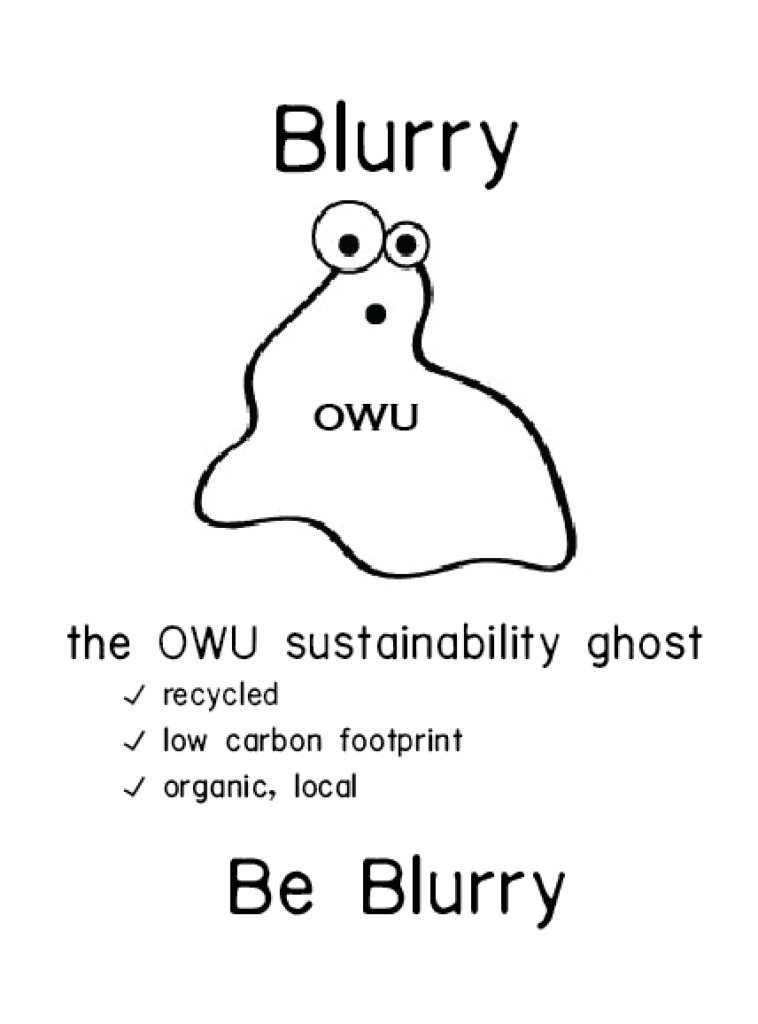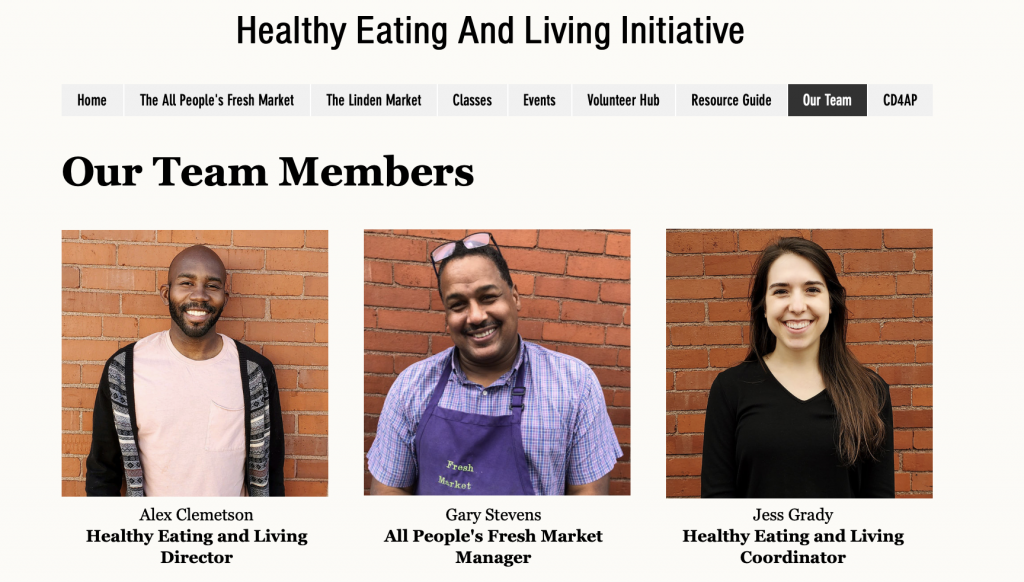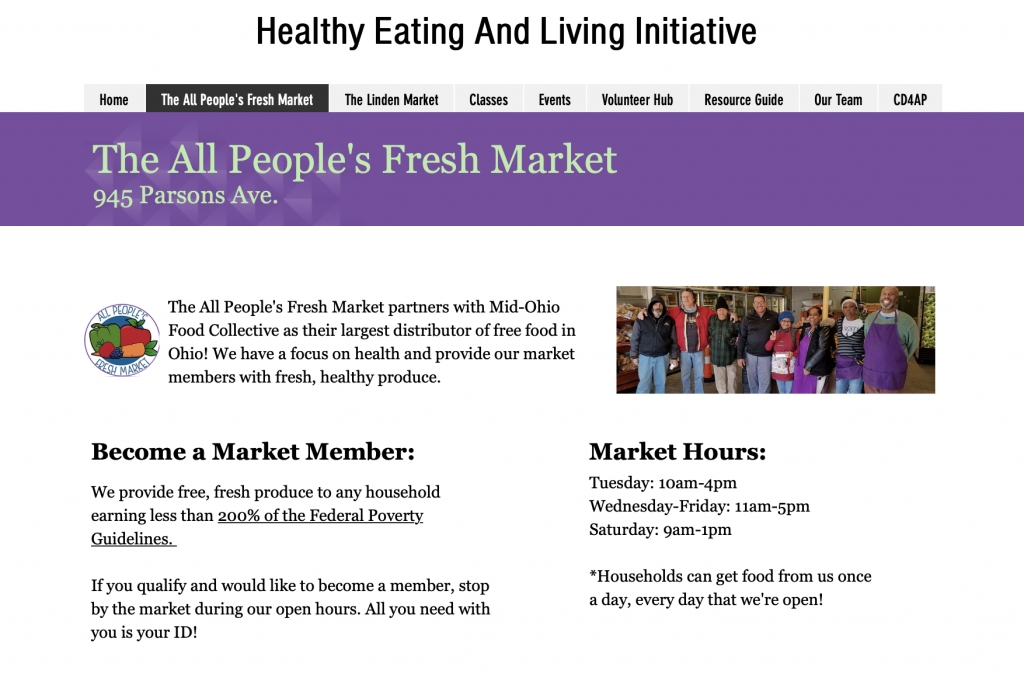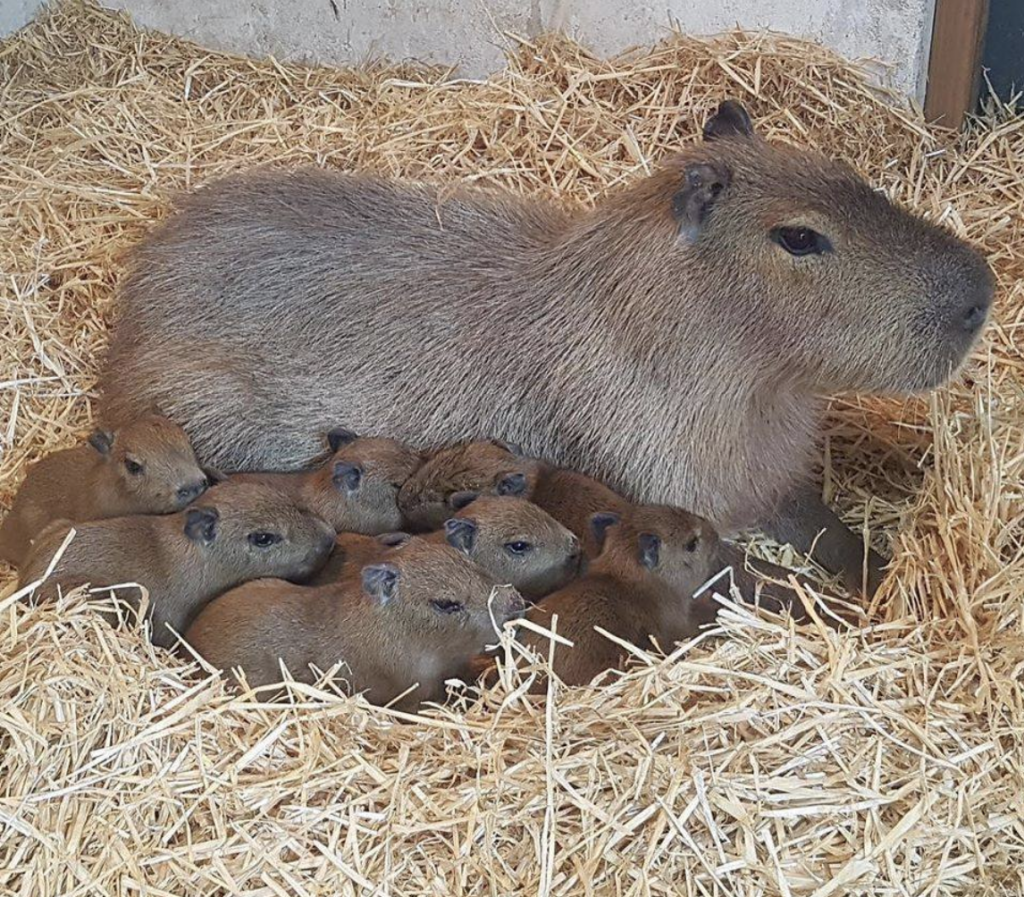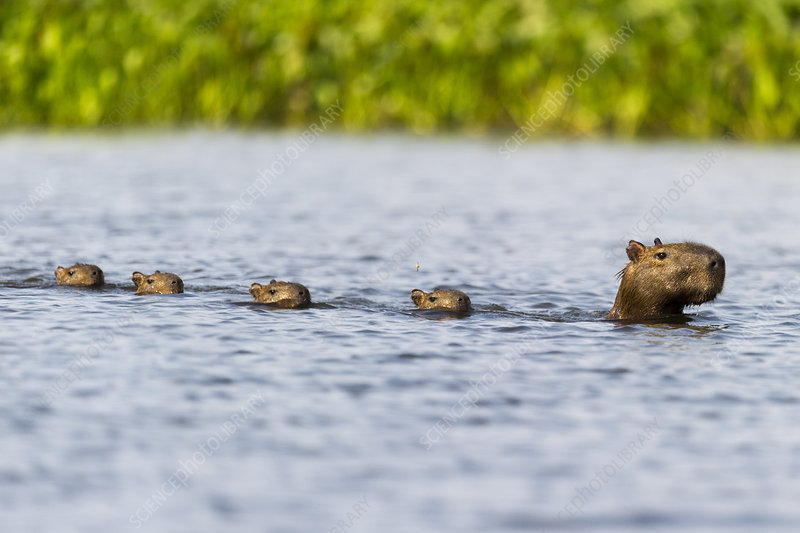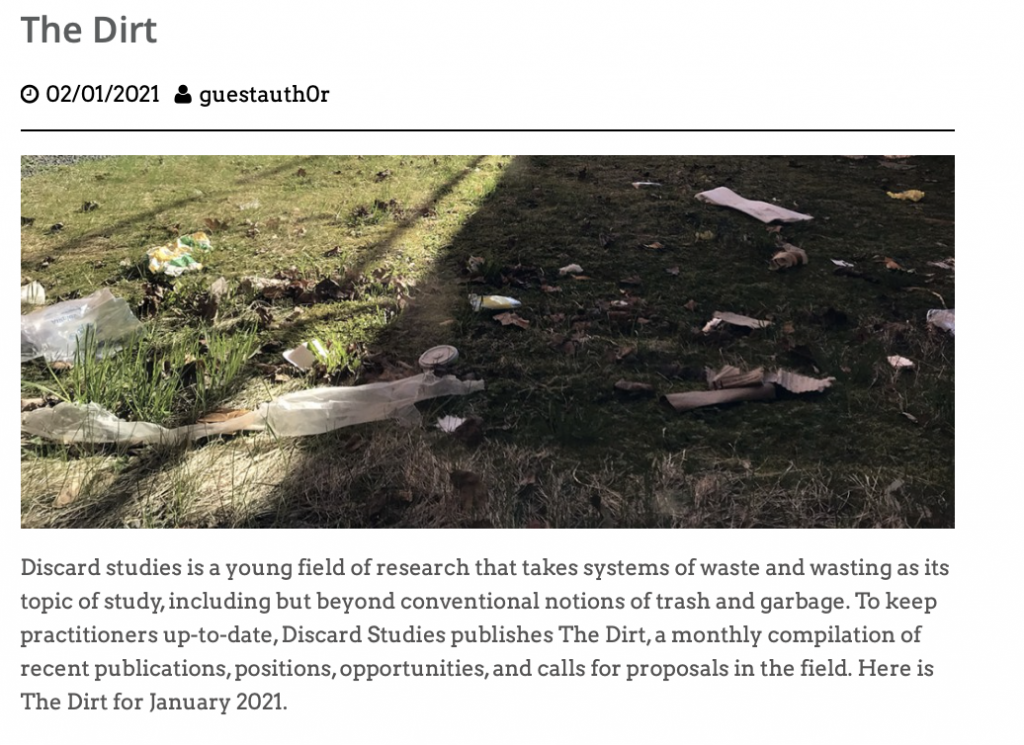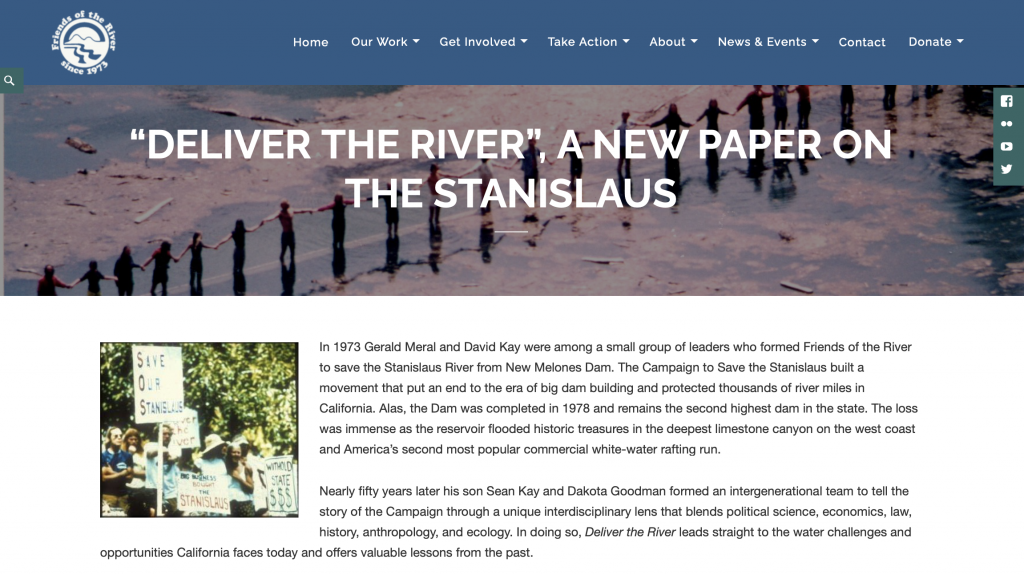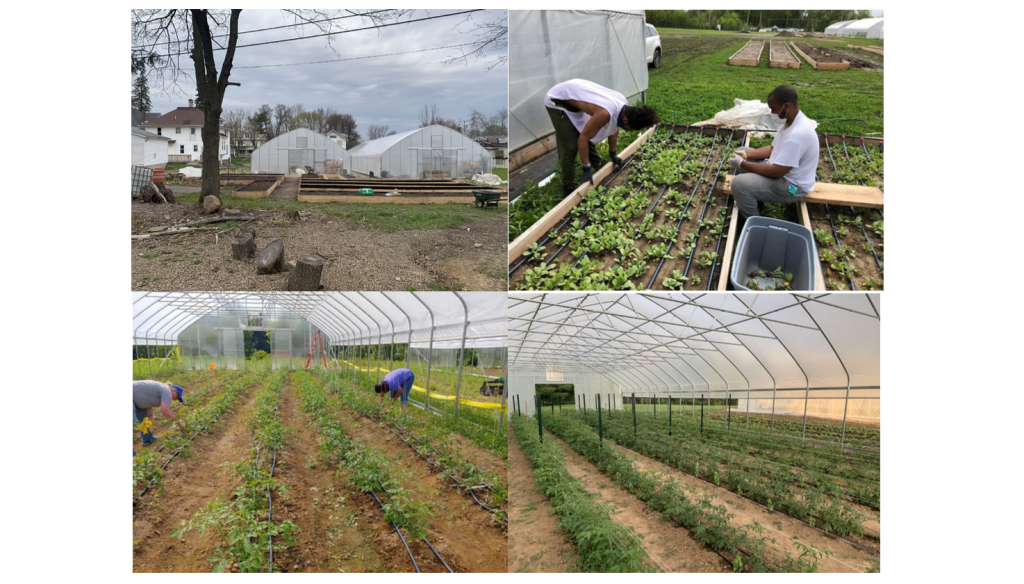OWU has two student-led organizations, affiliated with the Department of Environment and Sustainability. Click on either for more information…
Category: Environmental Justice
OWU ENVS EXPO 2024: Tuesday April 30, ’24
ENVS Expo 2024
Over 100 regional AP Environmental Science students, teachers, and dozens of OWU ENVS students, faculty, and community partners are participating in the 2024 OWU ENVS EXPO on Tuesday, April 30 in the OWU Science Center Atrium.
All are invited
Schedule
9:00-10:00am
Poster Session: Plant Responses to Global Change (BIOL 344 with Dr. Laurie Anderson)
10:00 – 12:00 noon
Poster Session: Remote Sensing of the Environment and Student Research
OWU Campus Tour (10:00 and 11:00 am)
OWU Sustainability Tour (10:00 and 11:00 am)
11:00-12:30 Visit with Stratford Ecological Center (tour run by Laurie Anderson)
12:00 – 1:00pm
Lunch and Lab Demonstrations (RSL Drone, Soil)
1:00 – 2:00pm (30 min panels x 2)
NSF Research Panel (GEOG 347) → SCSC 205
OWU Student Groups (STF, Student Board, Trouse) → SCSC 225
-
- Gabe Chelbowski ‘24
- Hannah Cox ‘24
- Logan if needed
- Abby Charlton ‘25 for Trouse
- Kahlil Mitchell-Smith ‘25
OWU Connection ENVS Student Panel → SCSC 207
-
- Matt Kelley ‘24
- Lily Bechina ‘26
- Elliot Spicer ‘24
- Jonathan Munroe ‘24
OWU ENVS Campus Partners (Intro, Krygier; Five minutes each) → SCSC 161
-
- Lisa Roberts, Watershed & Sustainability Coordinator, City of Delaware
- Fred Milan, Delco Water Co.
- Tony Benishek, Delaware Preservation Parks
- Laura Ann Bergman, Seminary Hill Farm, Methodist Theological School in Ohio
Update: Summer Experience for Central Ohio Internship Students
The Summer ’22 ROAR Academy is a great “add-on” to any Central Ohio student in an internship related to environment & sustainability. The Academy includes some training and credentialing, social events, and excursions. The experience also promotes networking with a significant group of central Ohio organizations and professionals.
A tentative schedule of activities is below. Cool stuff. Three OWU students are participating and about a dozen additional students from Kenyon, Denison and Otterbein.
Contact: Terry Hermsen: thermsen@otterbein.edu
PDF of the above image is here.
Green Week, May Move Out, Food Recovery Network … !!!
Green Week 2022 +++
Ohio Wesleyan Student Event to Celebrate Earth Day and Other Eco-Friendly Initiatives
One day – or even one week – isn’t enough time to highlight all of the Earth-friendly initiatives being spearheaded on campus this spring by Ohio Wesleyan University students.
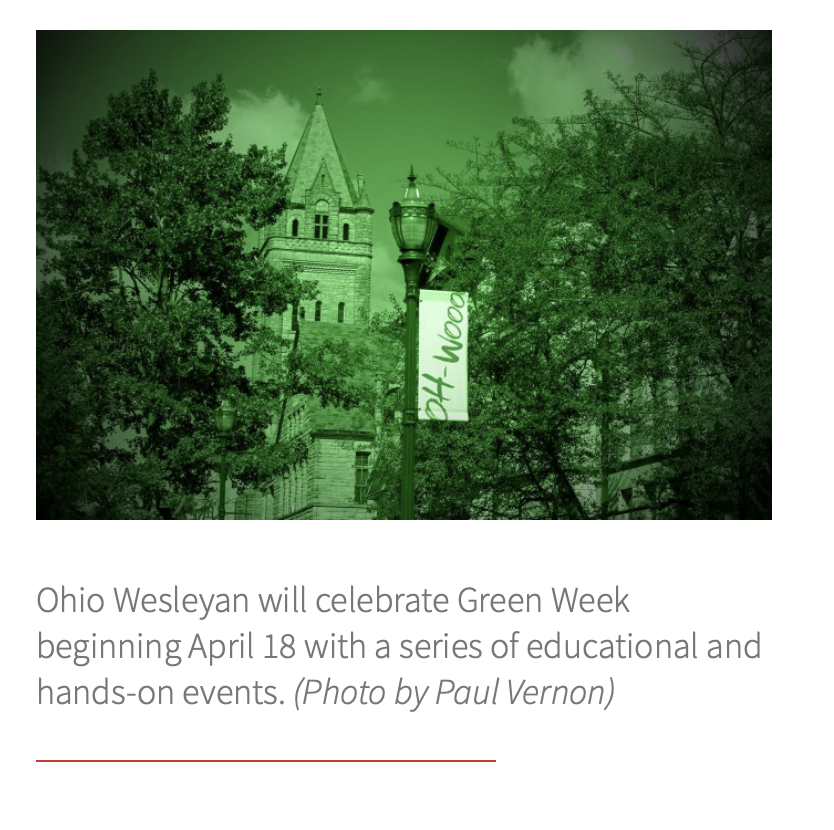 Instead, Environment and Sustainability students, residents of the Tree House small living unit, and others are planning a Green Week that will kick off Monday, April 18, and conclude Tuesday, April 26.
Instead, Environment and Sustainability students, residents of the Tree House small living unit, and others are planning a Green Week that will kick off Monday, April 18, and conclude Tuesday, April 26.
“Yep, Green Week and a half,” said John Krygier, Ph.D., professor of Environment & Sustainability.
A Packed Calendar
Students are planning a calendar of activities that includes information about how to reduce, recycle, and repurpose waste along with lunchtime tabling sessions with long-term environmental partners Del-Co Water Company and the city’s Public Utilities Department to discuss sustainability efforts. Both organizations also will share career and internship information.
The Green Week activities will include an April 23 trash cleanup in collaboration with the Unity Community Center and conclude April 26 with students enrolled in a renewable energy course presenting their research at 10:30 a.m. in the atrium of Schimmel/Conrades Science Center.
Treehouse moderator SK Bulander ’23 of Los Angeles, California, is coordinating this year’s events calendar.
“2040 is the non-negotiable deadline of overhauling our fossil fuel-dependent world before the Earth reaches a global average temperature of 1.5°C and is irreversibly damaged,” said Bulander, an Environmental Science and English (Literature) double major. “In the shadow of such a gargantuan task, it can be terrifying and stressful to even consider the idea of sustainability. My vision for Green Week is that it will give OWU students the tools to make meaningful lifestyle changes that are bite-sized.”
Numerous Opportunities to Get Involved
“Look for activities like ‘Plant-based Problem Solving,’ where students can learn about everyday low-waste and plant-based swaps, and ‘Bee-less Wax Wraps,’ which will instruct on how to make vegan wax wraps as an alternative to plastic wrap, plastic bags, tin foil, plastic lids, and many other single-use items. Make sure to donate old clothes to the pop-up campus trade store and pick up some new, re-used fits,” Bulander continued.
“Meanwhile, Green Week will provide students with a space to analyze the corporate forces driving the climate crisis,” she said. “This includes events like ‘An Introduction to Textiles,’ wherein students will learn about the environmental impacts of the textile industry, and ‘The Root of it: How Community Gardens in the U.S. Combat Food Insecurity,’ at which students can participate in a discussion panel with local community gardens and OWU professors on food insecurity at both the national and local level.
I hope that it will be apparent that there are numerous on-campus and nearby groups pushing for environmental action,” Bulander concluded. “Students looking to get more involved in the environmental side of OWU should join the Sustainability Task Force for monthly meetings that bring together the university’s administrators, faculty, staff, and students for updates on OWU’s environmental movements. It provides a great space for networking for careers in sustainability and acts as an excellent starting point for becoming more involved in clubs. I would also recommend they try out Citizens’ Climate Lobby (CCL) to advocate for local, bipartisan carbon emission-cutting legislation, especially in our extremely divisive political landscape today.”
May Move Out Recycling
On Earth Day (April 22), the group will launch this year’s May Move Out initiative, which urges students to donate usable clothing, books, furniture, household goods, and other items as they clear out their rooms at the end of the semester. Begun in 2012, the decade-old program typically recovers 10 tons of material annually that otherwise would go to a landfill.
Large, temporary storage pods will be set up to collect donations in parking lots at the Chi Phi fraternity on Williams Drive and at the Bradford Milligan, Smith, Stuyvesant, and Welch residence halls. Items will be accepted from 7 a.m. to 7 p.m. during the collection period and then donated to Goodwill. For more information and a list of acceptable items and donation dates, visit maymoveout.owu.edu.
May Move Out coordinator Graham Steed ’23 of Marion, Ohio, said he hopes students take the time to sort and donate all of their recyclables.
“Each item they dispose of has great impact on the well-being of our ecosystem and society,” said Steed, an Environmental Studies major. “Not only does each piece of trash travel great distances to landfills within our country or others, which produces large amounts of CO2, but also once they get there, they pollute the local community from toxic runoff. These communities are most often poor and communities of color, which further adds an intersectional aspect to this issue.”
Recovering Food, Nourishing Others
In addition to Green Week and May Move Out, Ohio Wesleyan students this semester also are relaunching an initiative to share unused dining hall food with the community. Ohio Wesleyan is a member of the national Food Recovery Network.
Students Abby Charlton ’25 of Newark, Ohio, and Savannah Domenech ’25 of Webster, New York, are overseeing this renewed effort, which includes collecting unused food once a week.
Domenech, an Environmental Studies and Geography double major, said of a recent collection, “we got over 30 pounds of food consisting of buffalo chicken, beef brisket, steamed rice, and mixed vegetables. However, in the past, the club has gotten over a hundred pounds of food for one recovery. After we weigh the food, we cart it over to Grace Clinic across the street, and they distribute it to their patients.”
Improving Water Quality
Another initiative restored this semester is the use of a storm net to collect debris from the Delaware Run, which flows through the north side of campus on its way to the Olentangy River. The 13,000-pound, 4-foot-high, 18.5-foot-wide, concrete-weighted storm net structure was installed into the Delaware Run in 2019, prior to the pandemic.
Students Logan Honchul ’24 of Trenton, Ohio, and AJ Lashway ’23 of Niskayuna, New York, began working with the City of Delaware’s Department of Public Utilities this semester to restore the net, monitor it, and analyze the items collected.
“I’m hoping to get more experience in water-quality testing, since my background in that aspect is more limited,” said Lashway, a Zoology, Environmental Science, and Creative Writing triple major. “It’s such an important part of understanding the health of bodies of water, so I’m excited to get better at properly analyzing the collected data. It will also be a great experience to be able potentially make changes based on the information we gather.”
Honchul said she also is interested in learning and honing skills to support her career goal of working in wildlife conservation.
“As a Zoology major, I have a strong passion for animals, and working with them in any capacity excites me,” said Honchul, who is double majoring in Environmental Science and minoring in Communications. “I hope I am able to help improve the local wildlife habitat. I hope to learn about how much litter and debris really affect local water life.”
Learn more about Ohio Wesleyan’s Department of Environment and Sustainability at owu.edu/environment.
Apply Now: Student Sustainability Coordinator: 2022-23 Position
Applications for the Fall 2022 – Spring 2023 Student Sustainability Coordinator position are open.
Applications are due Tuesday, April 5th at 11:59 p.m.
Brief interviews: March 22nd – April 19th.
Decision: Wednesday, April 27th
Questions: Talk to Krygier
Apply here: 2022-2023 On-Campus Internship Student Application
STAP Internship Title: Student Sustainability Coordinator
This position links to ongoing campus-wide efforts to improve sustainability, including a revision of our 2017 Sustainability Plan and a CleanTech U proposal that would substantially affect OWU’s campus and student experience.
Position Description: The Student Sustainability Coordinator position plays a vital role in maintaining and developing sustainability efforts on campus.
The student will organize and lead the campus Sustainability Task Force and liaise with the Environment & Sustainability Department (Anderson, Krygier, Rowley). Students in the position will also work with faculty, staff, and students (including those in Geography 360 & Geography 499) on-campus sustainability projects. Typically, the student attends the 0.25 credit ENVS 100.2/400.1 Conversations Towards a Sustainable Future course and works with new ENVS students.
Students may engage with additional research projects with ENVS faculty, pursue environmental activism efforts, help manage OWU’s Green Week, May Move Out, and other initiatives. Two students who previously held the position were authors on research papers published in part based on work undertaken while in a STAP position. The 2019-20 coordinator was awarded a PhD level graduate fellowship with full funding.
Skills/Qualifications Required: Candidates should be organized, enthusiastic, and work well with other people (students, staff, faculty). Experience with sustainability efforts on campus helps. Ability to maintain outreach and scheduling while working well without excessive oversight. Basic ability to use Google Drive apps, Doodle, etc. necessary. But who can’t do that?
Examples of Assignments/Duties: Sustainability Task Force (leadership, organization, content) in collaboration with Anderson, Krygier, Rowley. Assist with organization of May Move Out, Green Week, campus habitat enhancements (Chimney Swift Tower, bird habitats, etc.), recycling issues, food issues, composting, liaise with WCSA, Tree House, Citizens Climate Lobby, regional ROAR collaboration (Otterbein, Denison, Kenyon, etc.), City of Delaware, MTSO, Stratford, Preservation Parks.
Applications: Students interested broadly in the environment and sustainability. Environmental Science, Environmental Studies, Biological and Earth Sciences, P&G, Sociology, Nutrition, Psychology, etc. Future interests in environmental leadership, careers in the environment, graduate school
Unique Responsibilities: This position, as described above, is literal career training in that it requires passion and competence while allowing the student to pursue and develop important, practical skills. In addition, some previous students have used this position to engage in research, publication, and use the experience as a springboard to graduate school. Responsibility, leadership, motivation, and working for the better good of the environment and sustainability on campus and beyond are central to this position.
DOES Lunch: Alex Clemetson: Environmental Justice & Race: Tues. Oct. 5 @ Noon
Environment and Race: The Work of Sustainable Community Building
Department of Environment & Sustainability @ OWU
We welcome Alex Clemetson to Ohio Wesleyan to speak to us about his work and experiences surrounding environmentalism and race.
The intention of this discussion is to begin an initial examination into the intersections of environmental justice and injustice, race, and the communities that surround these co-existing realities. Within this DOES Lunch we will also examine the foundations of the communities we are connected to and the sustainable practices of community building that may or may not be in place.
Please come and learn about his experiences and collaborating to make the field of the environment a more equitable space.
When: Tuesday 05 October 2021 at noon
Where: SCSC #207 (GIS Lab)
We’re currently working on some form of food available, so please let Dr. Rowley know if you have any food restrictions.
Apply now! Student Sustainability Coordinator STAP Position, 2021-22
Please consider applying for the paid Student Sustainability Coordinator STAP position for the 2021-22 academic year.
This is a paid position, 6 hours per week.
The coordinator works with faculty in ENVS and the Sustainability Task Force on-campus initiatives and efforts related to the environment and sustainability.
This position requires initiative, engagement, and passion – and is central to our sustainability efforts on campus.
A description of the position is below. Ask John Krygier if you have questions!
Apply before: Wednesday, April 7th at 11:59 pm
Apply here
Eligibility here
The Student Sustainability Coordinator position plays a vital role in maintaining and developing sustainability efforts on campus.
The student will organize and lead the campus Sustainability Task Force and liaise with the Environment & Sustainability Department (Anderson, Krygier, Rowley). Students in the position will also work with faculty, staff, and students (including those in Geography 360 & Geography 499) on-campus sustainability projects. Typically, the student attends the 0.25 credit ENVS 100.2/400.1 Conversations Towards a Sustainable Future course and works with new ENVS students.
Students may engage with additional research projects with ENVS faculty, pursue environmental activism efforts, help manage OWU’s Green Week, May Move Out, and other initiatives. Two students who previously held the position were authors on research papers published in part based on work undertaken while in a STAP position. The last student to hold the position was recently awarded a PhD level graduate fellowship with full funding.
Sustainability Task Force (leadership, organization, content) in collaboration with Anderson, Krygier, Rowley. Assist with organization of May Move Out, Green Week, campus habitat enhancements (Chimney Swift Tower, bird habitats, etc.), recycling issues, food issues, composting, liaise with WCSA, Tree House, Citizens Climate Lobby, regional ROAR collaboration (Otterbein, Denison, Kenyon, etc.), City of Delaware, MTSO, Stratford, Preservation Parks.
Students interested broadly in the environment and sustainability. Environmental Science, Environmental Studies, Biological and Earth Sciences, P&G, Sociology, Nutrition, Psychology, etc. Future interests in environmental leadership, careers in the environment, graduate school.
This position, as described above, is literal career training in that it requires passion and competence while allowing the student to pursue and develop important, practical skills. In addition, some previous students have used this position to engage in research, publication, and use the experience as a springboard to graduate school. Responsibility, leadership, motivation, and working for the better good of the environment and sustainability on campus and beyond are central to this position.
Position is both Fall 2021 & Spring 2022 Semesters
The Dirt: Interdivisional Studies of Waste and Discards
Starting off the postings with a re-post of “The Dirt” – a compilation of research on discards, waste, and related topics. The newish field of discard studies is remarkably interdisciplinary and interdivisional.
Recent Discard Studies Posts
- Firsting in Research by Max Liboiron
- COVID-19 measures and industrial workplaces by Nora Loreto
- Top 10 Discard Studies articles of 2020
- Nigeria’s COVID-19 waste management policy should include the informal sector by Chidi Nzeadibe and Adaeze Ejike-Alieji
Peer-reviewed publications (articles & books)
Note: If an article is behind a paywall, email the author. They are almost always authorized by copyright to distribute their own work.
We have begun posting the gender parity of The Dirt, especially given evidence that COVID-19 is increasing the skew in knowledge production to be ever more male, white, and childless. This bibliography is 53.6% percent women authors, based on Dr. Jane Summer’s Gender Balance Assessment Tool. This is the first Dirt to have more women than men authors since we’ve been recording gender figures, likely thanks to a call out via Twitter where we mentioned that over 90% of the people who send us notice of their publications (which we love!) are white men. Keep those notices coming, women/non-binary/tw-spirit/trans/gender minitory authors!
- , , . (2020). The evolution of consumer electronic waste in the U.S.. J Ind Ecol.; 1– 14.
- Bresnihan, Patrick, and Arielle Hesse. (2020). Political ecologies of infrastructural and intestinal decay. Environment and Planning E: Nature and Space.
- Calkins, Sandra. (2020). Lab hands and knowing toxic substances in Uganda. Anthropology Today, 36(6), 29-32.
- Crosby, Alexandra, and Jesse Adams Stein. (2020). Repair. Environmental Humanities, 12(1), 179-185.
- Eitel, Kathrin (2020). PlastiCorona: Who Cares About That Waste? In: Social Anthropology 28 (2), 261–262.
- Geissler, Wenzel., Prince, Ruth J. (2020). ‘Toxic worldings’: Introduction to toxic flows. Anthropology Today, 36(6), 3-4.
- Harvey, Penny. (2020). Radiation as social relation. Anthropology Today, 36(6), 13-16.
- Helliwell Richard, Raman Sujatha, Morris Carol. (2020). Environmental imaginaries and the environmental sciences of antimicrobial resistance. Environment and Planning E: Nature and Space.
- Herrick, Clare. (2020). The optics of noncommunicable diseases: from lifestyle to environmental toxicity. Sociology of Health & Illness, 42(5), 1041-1059.
- Ialenti, Vincent. (2021) Drum breach: Operational temporalities, error politics and WIPP’s kitty litter nuclear waste accident. Social Studies of Science.
- Jack, Tullia, Manisha Anantharaman, and Alison L. Browne. (2020). ‘Without cleanliness we can’t lead the life, no?’Cleanliness practices,(in) accessible infrastructures, social (im) mobility and (un) sustainable consumption in Mysore, India. Social & Cultural Geography, 1-22.
- Jenkins, Kristen E., Sovacool, Benjamin K., Mouter, Niek, Hacking, Nick, Burns, Mary-Kate, & McCauley, Darren. (2020). The methodologies, geographies, and technologies of energy justice: A systematic and comprehensive review. Environmental Research Letters.
- Kenner, Alison. (2020). Scrapping the Workshop of the World: Civic Infrastructuring and the Politics of Late Industrial Governance. Engaging Science, Technology, and Society, 6, 514-533.
- Kopf, Charline. (2020). The dynamics of toxic dust. Anthropology Today, 36(6), 17-20.
- Molloy Murphy, A. (2020). Plastic City: A Small-Scale Experiment for Disrupting Normative Borders. Association of Early Childhood Educators of Ontario (AECEO) 4(1), 14.
- Saraç-Lesavre, Başak. (2020). Deep time financing?‘Generational’responsibilities and the problem of rendez-vous in the US nuclear waste programme. Journal of Cultural Economy, 1-14.
- Shcheglovitova, Mariya. (2020). Dawn of the lively dead: Living queerly with rot in the sustainable city. Social & Cultural Geography, 1-16.
- Sholanke, Dare and Jutta Guberlet (2020). Informal Recycling in Vancouver: binners’ challenges and opportunities. In: Info From the Global World. Eds. Maria Cristina Lavagnolo and Marc Kalina. Detritus. 13: I-IV.
- Soma, Tammara. (2017). Gifting, ridding and the “everyday mundane”: the role of class and privilege in food waste generation in Indonesia. Local Environment, 22(12), 1444-1460.
- Shattuck, Annie. (2021). Toxic uncertainties and epistemic emergence: understanding pesticides and health in Lao PDR. Annals of the American Association of Geographers, 111(1), 216-230.
- Tessaro, Laura. (2020). Potency and Power Estrogen, Cosmetics, and Labeling in Canadian Regulatory Practices, 1939-1953. Catalyst: Feminism, Theory, Technoscience, 6(1).
- Thieme, Tatiana. (2021). ‘Youth are redrawing the map’: temporalities and terrains of the hustle economy in Mathare, Nairobi. Africa, 91(1), 35-56.
- Tousignant, Noémi. (2020). Toxic residues of Senegal’s peanut economy. Anthropology Today, 36(6), 5-8.
- Tucker, Jennifer L., & Anantharaman, Manisha. (2020). Informal work and sustainable cities: from formalization to reparation. One Earth, 3(3), 290-299.
- Ureta, Sebastian. (2021). Ruination Science: Producing Knowledge from a Toxic World. Science, Technology, & Human Values, 46(1), 29-52.
- Wittmer, Josie. (2020). “We live and we do this work”: Women waste pickers’ experiences of wellbeing in Ahmedabad, India. World Development.
- Wishart, Lucy J., & Bebbington, Jan. (2020). Zero waste governance: a Scottish case study. International Journal of Sustainable Development, 23(1-2), 128-147.
- Woodworth, Max D. (2020). Picturing Urban China in Ruin:“Ghost City” Photography and Speculative Urbanization. GeoHumanities, 6(2), 233-251.
Other publications
- Eitel, Kathrin (2020). PlastiCorona: Who Cares About That Waste? In: Social Anthropology 28 (2), 261–262.
- Johansson, Nils (2021) Disaster Capitalism, COVID-19, and Single-Use Plastic” Antipode online
Special Issues and Collections
- Toxic Flows: Anthropology Today, Volume 36, Issue 6
Theses and Dissertations
- Degray, Amanda (2020) Indigenous risk perceptions and land-use in Yellowknife, NT. Masters thesis, Memorial University of Newfoundland.
-
Wittmer, Josie. (2020). Women’s work in the ‘clean city’: Perspectives on wellbeing, waste governance, and inclusion from the urban margins in Ahmedabad, India. Doctoral Dissertation, University of Guelph.
Calls for Proposals & Participation
The following are calls for papers for Special sessions in the Society for the Social Studies of Science (4S) conference, online & at Toronto, October 6-9:
- Toxic Goodness: Harmful Legacies, Hopeful Futures
- Un/Making a Difference: The possibilities of extra-ordinary acts of mundane resistance
- Aerotechnologies: Air as Elemental Technology
- (Re)materialising Cancer: Bodies, Cells and Environments
- Good and bad relations: Exploring the intersection of multiple forms of citizen science, law and environmental governance
- Good Governance, Good Relations, and (Nuclear) Waste Management
- Mediation, Probability, and Environmental Risk
- Scaling the Ethical Plateaus of Energy Justice
- Toxic Entanglements: acting on slow, invisible, and emerging realities
- Sense ecologies: new technologies and strategies of environmental surveillance
- Using Speculative Fictions for Pedagogical/Research Applications Centered Around Environmental Stewardship, Responsibility, and Responsible Innovation
- Composting Feminisms and Environmental Humanities
- DISEASED LANDSCAPES: Health and Illness in Territories of Extraction
- Emergence in Environmental Infrastructures
- Ferment as Method: Creating the Conditions for Transformative Relations
- Food for care: Interrogating practices of eating in troubled worlds
- Governing Environmental Inequalities: Towards a New Research-Action Framework on Agency, Power & Multispecies Justice
Positions
- Open rank position in Race, Racism and/or Racial Inequality, Sociology, Columbia University
- Assistant Professor in Public History/Public Humanities, History, University of Louisville
- Assistant professor, Indigeneity and Decolonization, Sociology, York University
-
Postdoc on climate change, terrorism risk and insurability, University of Queensland. Must already have right to work in Australia.
- Southeast Asian Environmental History PhD Scholarship, Murdoch University
- 5 Postdocs in Global Racial Justice, Rutgers University
If you have an item to add to The Dirt, please contact editors@discardstudies.com. We are especially interested in non-English language submissions, and those from outside North America and Europe.
OWU Faculty Sean Kay on California’s Stanislaus River
Dr. Kay teaches, among other things, PG 280 Environmental Politics and Policy at OWU. He’s co-authored a new article on environmental policy and the Stanislaus River in California (link).
As many know, in the last few years, I’ve taken a dive into teaching and research on environmental issues. I’m very excited that this paper that I have co-authored with Dakota Goodman has been published by Friends of the River this week – “Deliver the River: States’ Rights, Cost-Benefit, and Environmental Justice on California’s Stanislaus River.” Friends of the River is the non-profit in California that my father helped to co-found in 1973, to lead the campaign to save the Stanislaus from a wasteful and unneeded New Melones Dam and Reservoir. After my father passed away, I got his files on this, and we were able to use those to rerun and update the case against the dam, including cost-benefit assumptions, and we have shown the extent of the loss, and lies, that were used to sell the dam – and document the harm it has done ecologically and to local communities. And, we show the way forward to deliver the river, finally about 50 years later, so that the Camp 9 Run on the Stanislaus can finally be liberated and a better way of water management achieved in California.
I hope folks can take a few minutes and read (and feel free to share!) the article – it’s both a strong personal tribute to my dad, but more importantly to the river we all lost, and yet still remains under the reservoir, waiting to flow once more.
More information here.
Event: 3rd Annual Ohio Microfarm Project Symposium
NECIC invites you to the 3rd Annual Ohio Microfarm Project Symposium
October 23, 2020 @ 9am-4:15pm
October 24, 2020 @ 9am-11am
Register Here
(Registration will close on October 22nd at 12pm)
In partnership with The Ohio State University-Mansfield Campus, please join us for an updated overview of the Ohio Microfarm Project.
See the second-year results of this three-year project! The October 23rd event virtually showcases community partnerships, urban farming, resiliency of farming, and co-op development. The October 24th event is brought to you by the Richland Gro-Op and will exhibit two urban microfarm and two rural microfarm outings, all a result of the input received from last year’s symposium.
